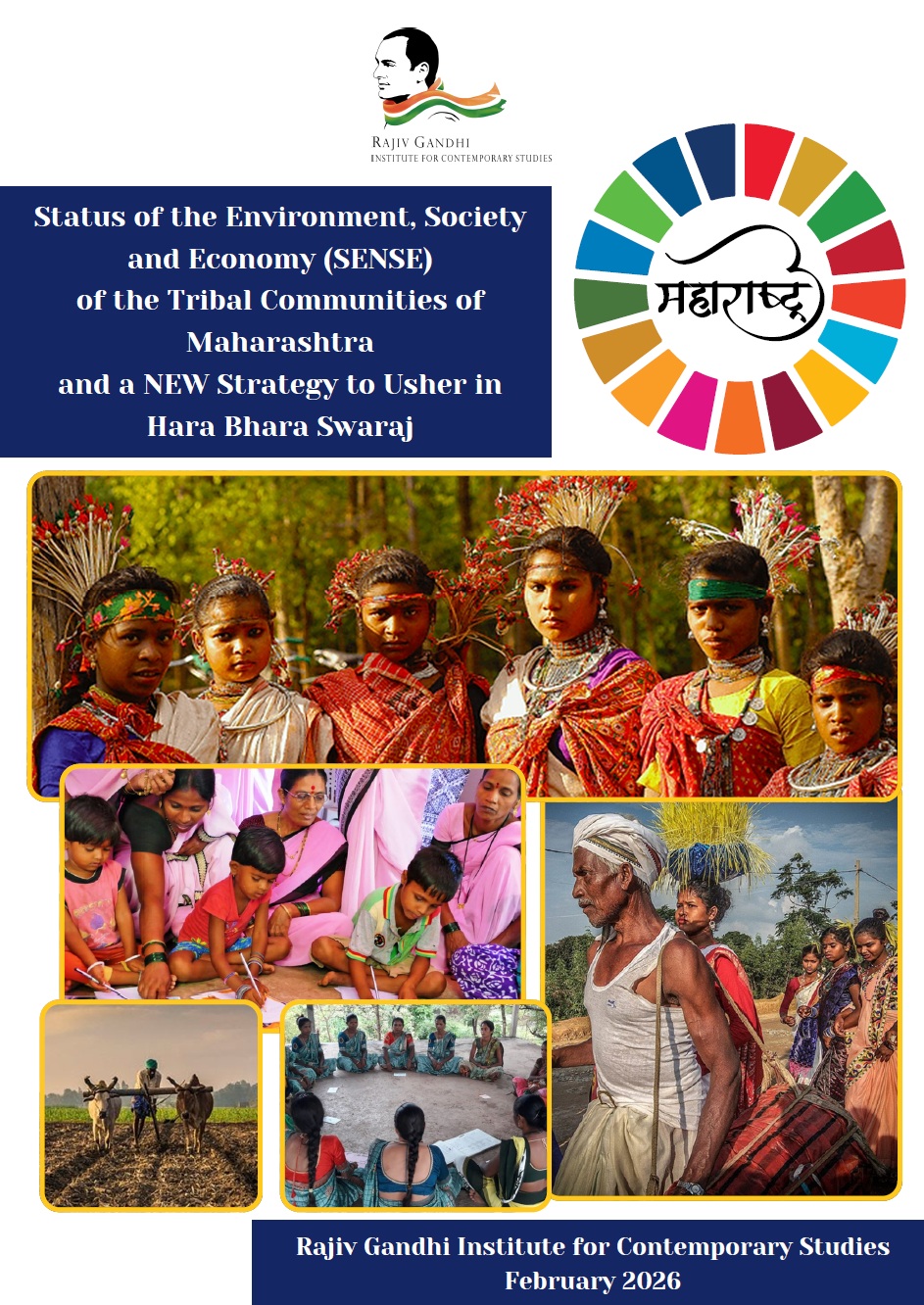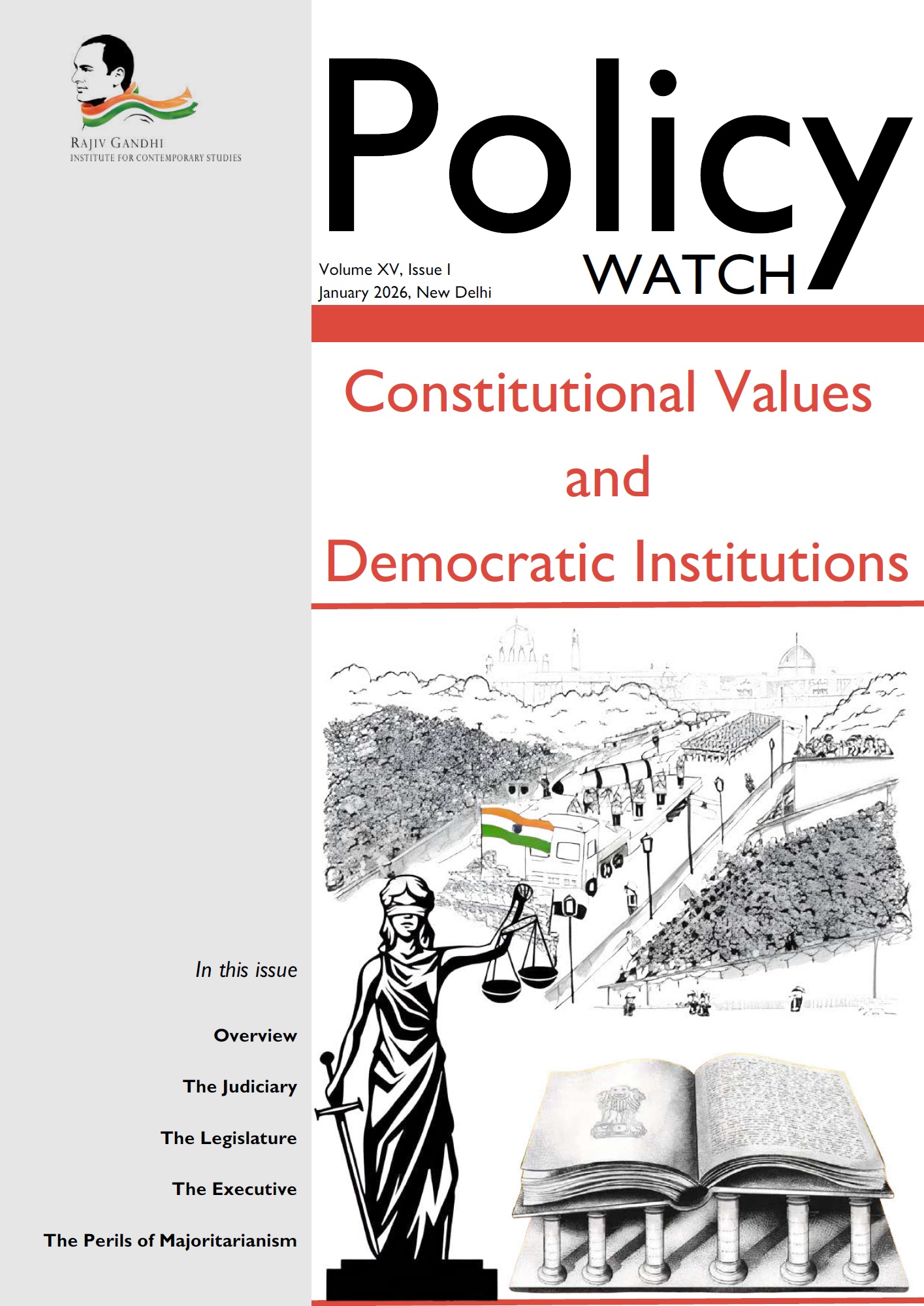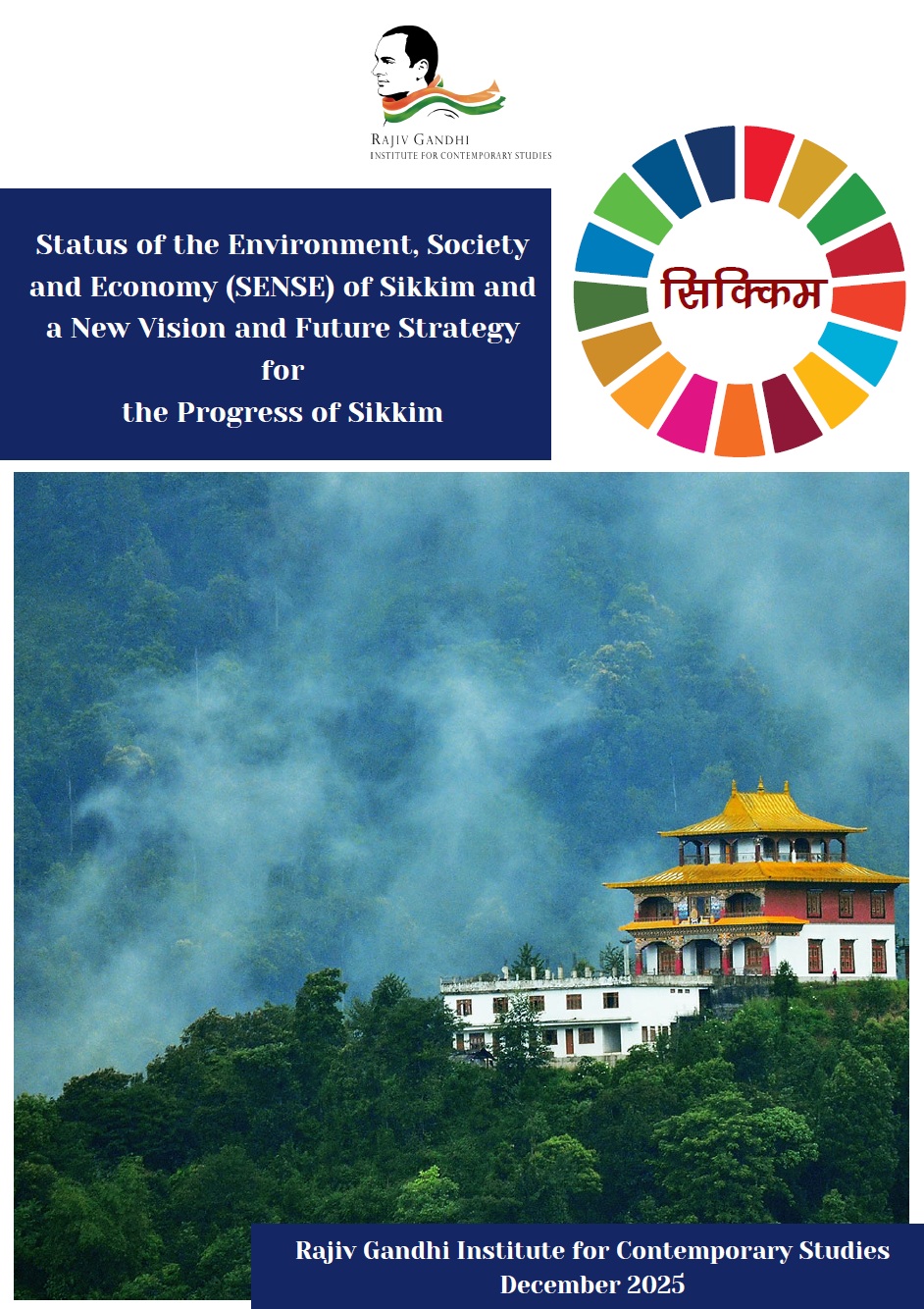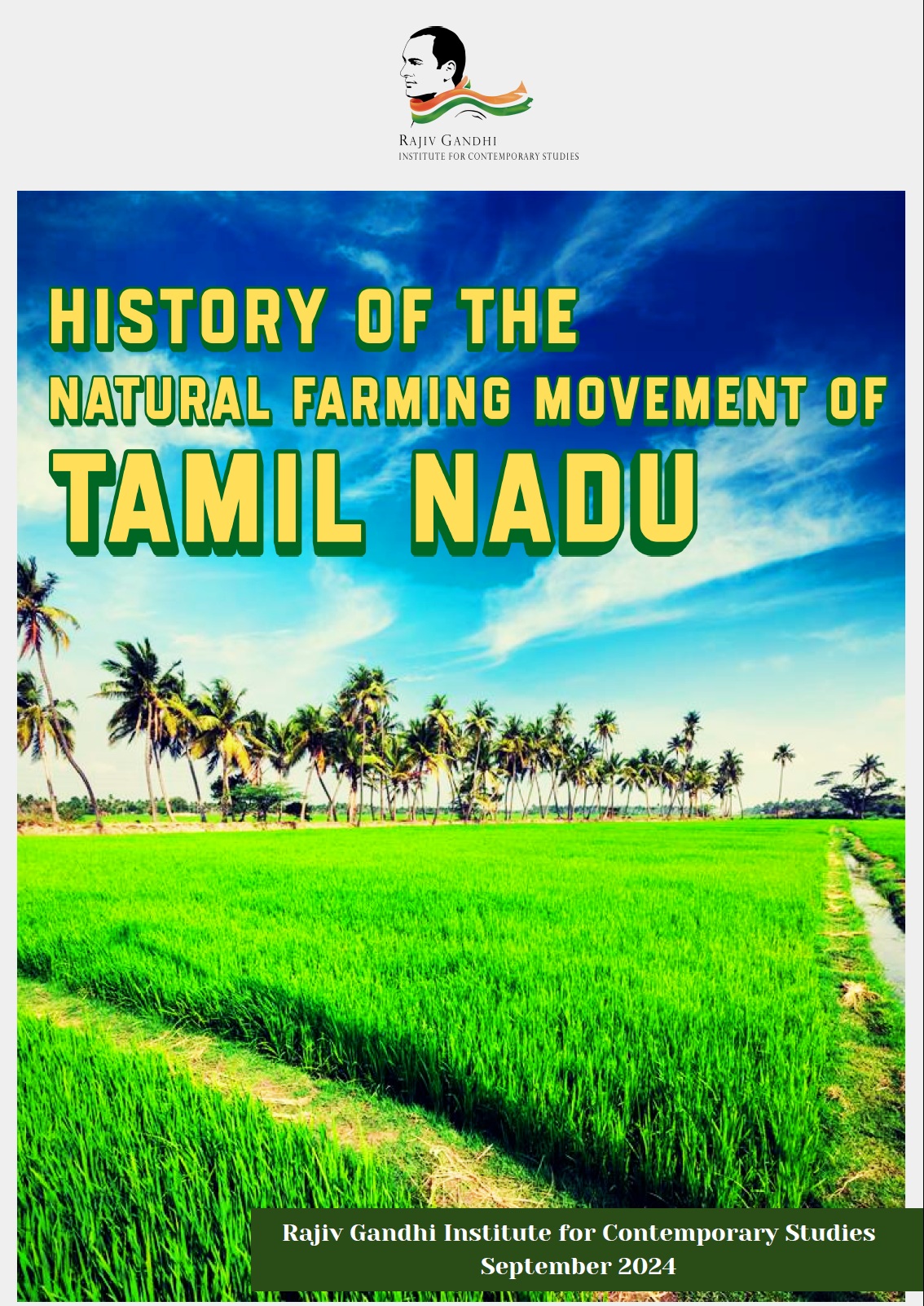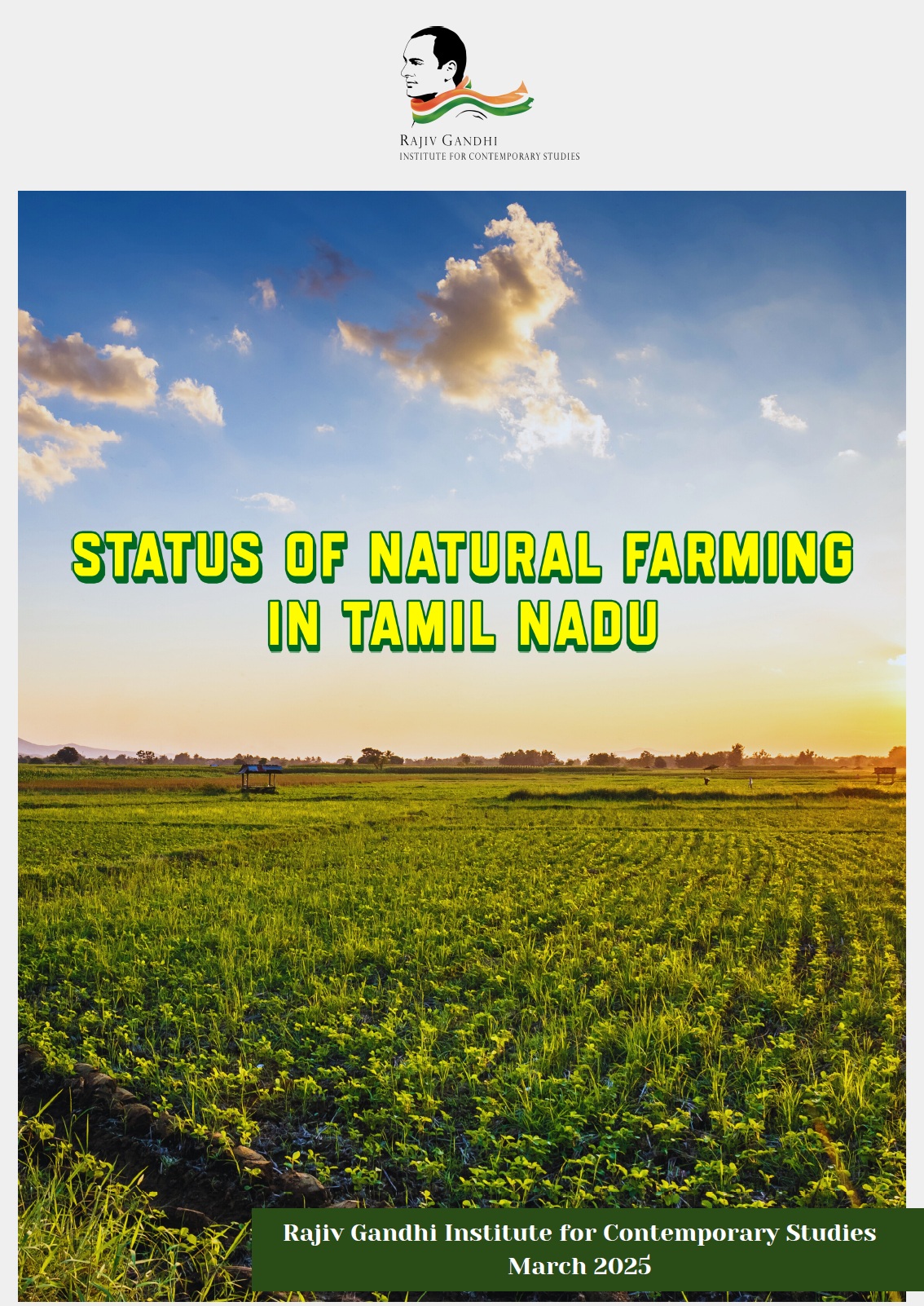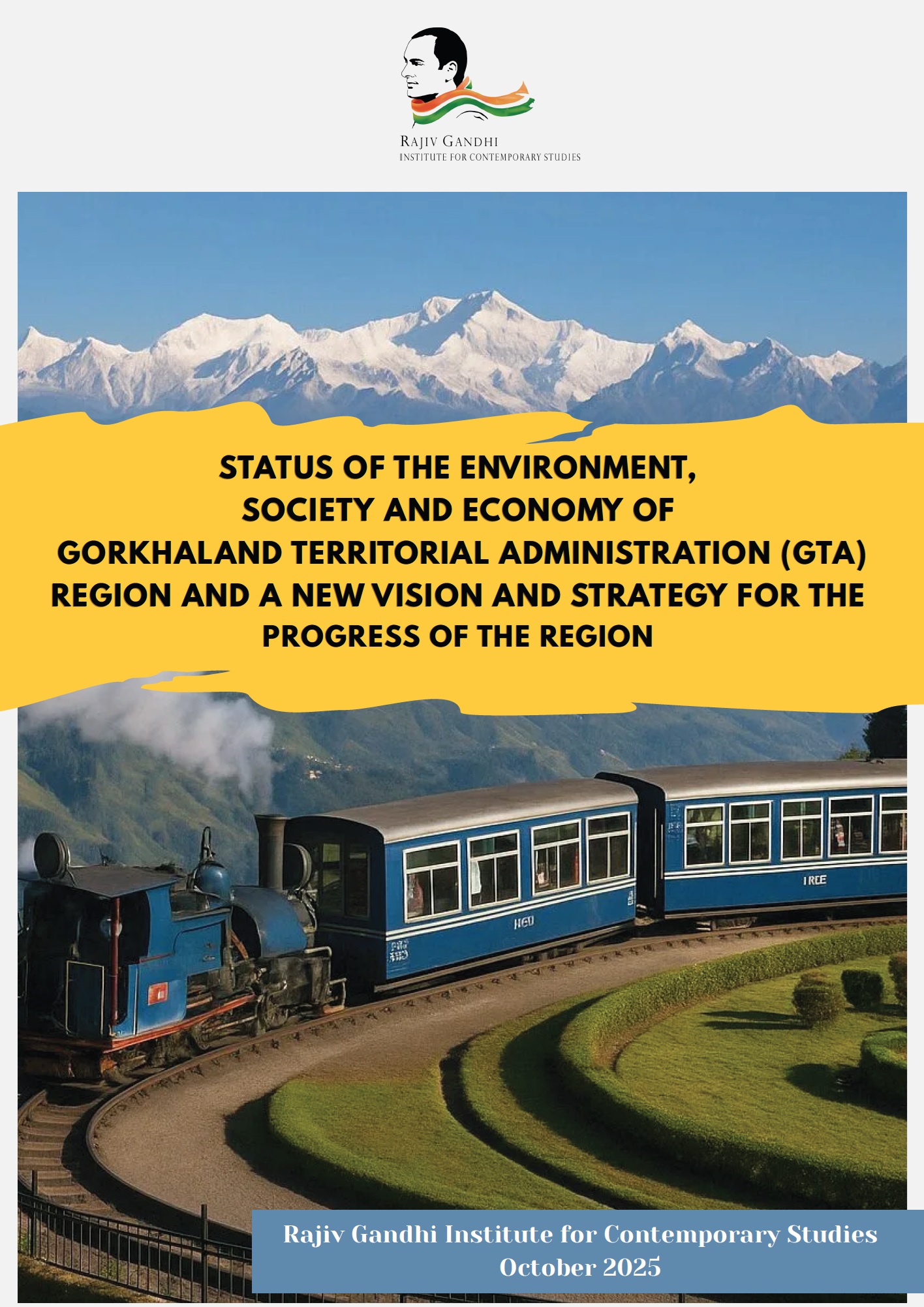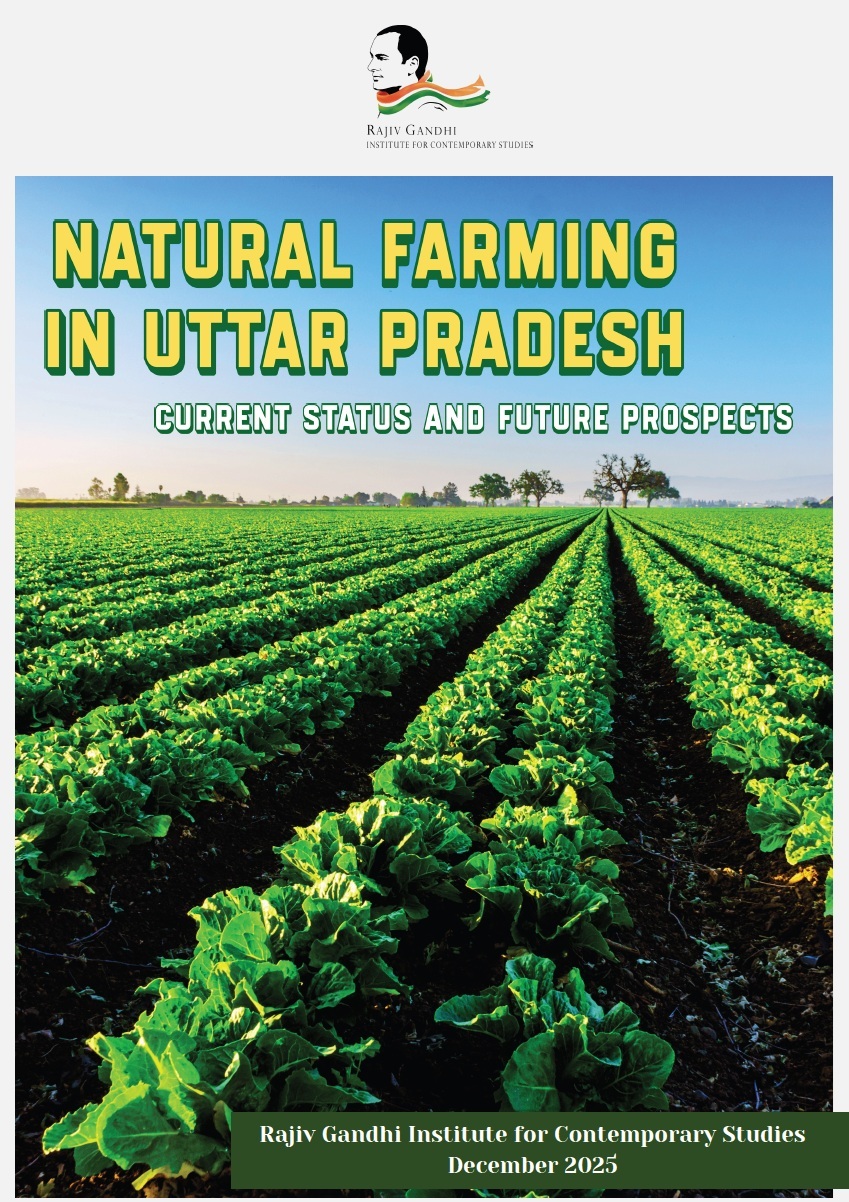This issue of Policy Watch focuses on Environment, Natural Resources, and Sustainability, presenting five articles that explore alternative development paradigms. The first article by Vikalp Sangam, a coalition of activists and NGOs, highlights five unifying principles of alternatives to the dominant development model: ecological integrity and resilience, social well-being and justice, direct and delegated democracy, economic democracy, and cultural and knowledge diversity. The article includes numerous grassroots initiatives and prepares readers for the upcoming Vikalp Sangam meeting in Bhuj.
The second article summarizes a webinar held on Himalaya Day (9th September 2024) organized by RGICS, discussing ecological threats to the Himalayan region—such as glacier melting, forest degradation, and loss of biodiversity—and exploring opportunities to protect this fragile ecosystem. This webinar contributes to RGICS studies on the Western Himalayas and Northeastern States’ ecology, economy, and livelihoods.
The third article by Dr. Vishal Massey reviews the Forest Rights Act, 2006, noting that over 24 lakh claims from tribal and forest dwellers have been recognized across India, including approximately 1.15 lakh community forest rights claims. In total, 138 lakh crore forest land has been allocated for community use and management, highlighting the need for policies that balance social justice with ecological sustainability.
The fourth article discusses biodiversity credits as a novel climate finance mechanism intended to support conservation while benefiting local communities. However, critiques from the Third World Network warn that these credits may allow businesses to harm biodiversity and exacerbate vulnerabilities in poorer countries. Additionally, Sandeep Saxena critiques traditional biodiversity offsets and proposes Green Earth Blockchain Tokens (GEBTs) as a fairer system to reward all participants in sustainable food and natural product supply chains.
The final article by Deni Shah and Altamash Qureshi examines a recent Supreme Court ruling upholding state governments’ rights to collect retrospective mining royalties dating back to 2005. The ruling could generate about ₹150,000 crore in tax arrears, starting collections in 2026 over 12 years. While this may boost state revenues, it also poses financial challenges for the mining industry, potentially affecting investment, pricing, and sector stability.
Policy Watch: Environment, Natural Resources and Sustainability – October 2024
Send download link to:


